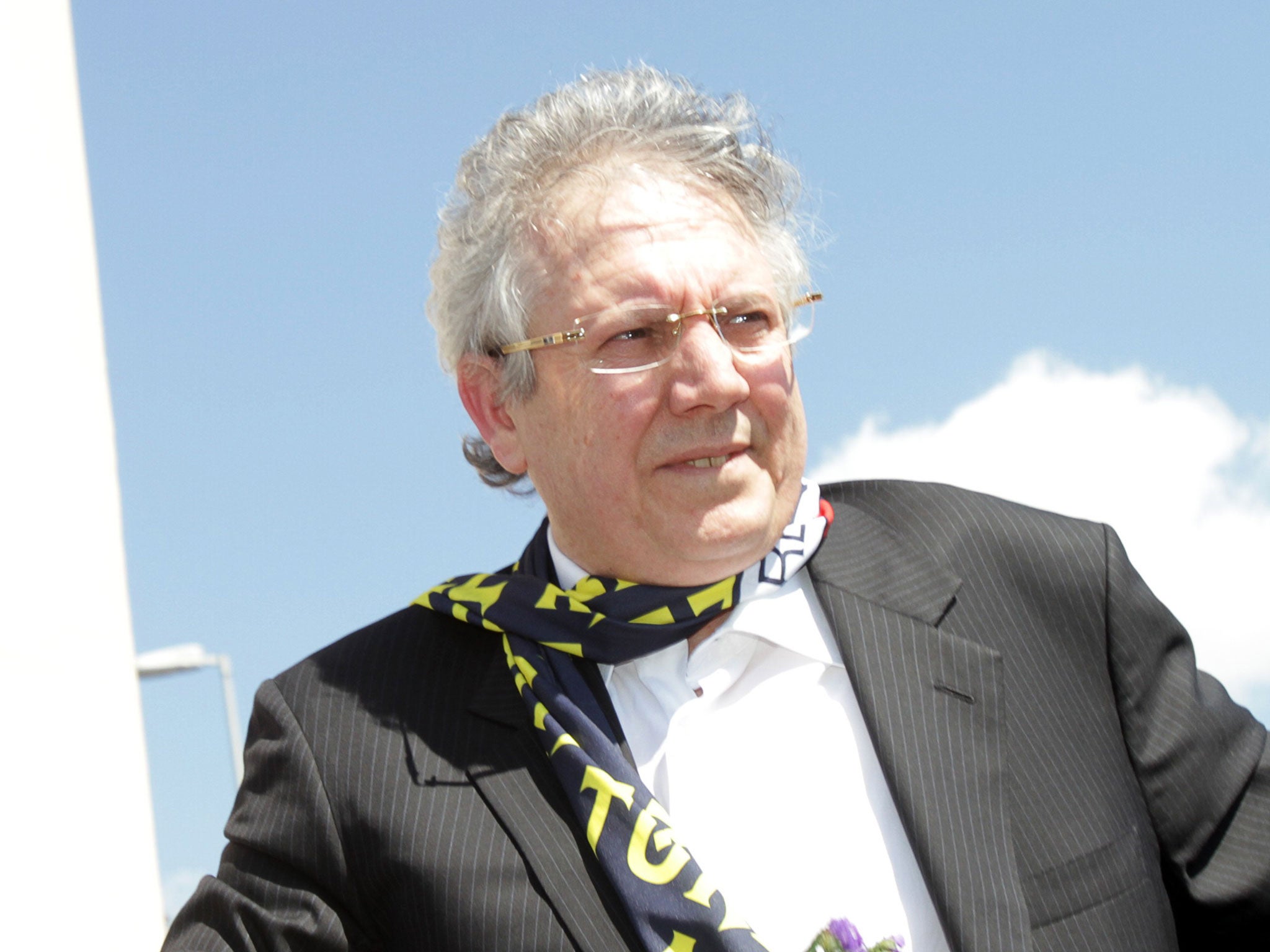Fenerbahce v Arsenal: Why Arsenal could lose play-off and still advance in Champions League
Match-fixing scandal centred on controversial president likely to result in Turks being expelled

Your support helps us to tell the story
From reproductive rights to climate change to Big Tech, The Independent is on the ground when the story is developing. Whether it's investigating the financials of Elon Musk's pro-Trump PAC or producing our latest documentary, 'The A Word', which shines a light on the American women fighting for reproductive rights, we know how important it is to parse out the facts from the messaging.
At such a critical moment in US history, we need reporters on the ground. Your donation allows us to keep sending journalists to speak to both sides of the story.
The Independent is trusted by Americans across the entire political spectrum. And unlike many other quality news outlets, we choose not to lock Americans out of our reporting and analysis with paywalls. We believe quality journalism should be available to everyone, paid for by those who can afford it.
Your support makes all the difference.There are worse positions to be in than Arsenal's and worse people to run your club than Ivan Gazidis. However tough their plight is, tomorrow night's rivals are in a more parlous state. Elimination from the Champions League is one thing, expulsion quite another.
Fenerbahce are this week contesting their Uefa ban from the Champions League at the Court of Arbitration for Sport. The hearing should be held today and tomorrow, with a final decision due next Wednesday. If – as is expected in Turkey – the CAS upholds Uefa's two-year ban (with a third year suspended), Fenerbahce will be out of the competition and the play-off with Arsenal will have been pointless. Only the club's appeal to the CAS led to the freezing of the sanctions this far.
It began in the summer of 2011 with a secret police investigation into the influence organised crime has over Turkish football, particularly regarding the fixing of 19 matches – many of them involving Fenerbahce during their 2010-11 Super Lig triumph, most notably the 4-3 defeat of Sivasspor that won them the Turkish league. Fener were withdrawn from the 2011-12 Champions League in favour of Trabzonspor but the inquiry continued.
At the centre of the allegations and of the criminal network which wielded so much power is Aziz Yildirim, president of Fenerbahce, hero to many of the club's fervent fans and one of the most powerful men in Turkey. The construction magnate has rebuilt Fenerbahce during his 15-year tenure, expanding the Sukru Saracoglu stadium, buying big names, making them the first Turkish team to reach the Champions League quarter-finals, the first to be listed in Deloitte's Football Money League, with a turnover of over €110m (£93m).
But to his detractors – especially supporters of other teams – Yildirim is akin to a mafia boss, who corrupted Turkish football – along with many other directors, coaches and players who were part of his network – so that Fenerbahce could win. In July 2012 the 60-year-old was convicted of establishing a criminal organisation and illegally influencing matches, but was soon released from prison for time already served. He was carried out on the shoulders of Fener fans. While Yildirim did have to spend almost a year in prison, there were demands for Fenerbahce to be relegated in line with the existing regulations.
But, with Fener under investigation, there was a move to have the rule abolished. Last year, the Turkish football federation removed the clause, arguing that it was unfair to punish clubs for the sins of individuals and that the league and economy would suffer unduly if big clubs like Fenerbahce – estimated to be supported by over one third of Turkey – were not there. So despite the convictions of Yildirim and others, the club has been allowed to continue freely in the Turkish league, leading to many questions about their influence and that of their owner.
Through all of this Fenerbahce have gone on fairly comfortably, even with the Uefa disciplinary process and the prospect of three-year European ban. They are still bringing in enough money in sponsorships to sign big players, such as Moussa Sow, Dirk Kuyt, Bruno Alves and Raul Meireles. Volkan Demirel, the Turkey goalkeeper who grew a walrus-like moustache and refused to shave until Yildirim's name was cleared, is also still there.
"This struggle will continue until the end and both the whole of Turkey and the world will see that Fenerbahce is in the right," Yildirim said last month, when he knew CAS may suspend the ban. He was right on one point but perhaps not on the other.
Join our commenting forum
Join thought-provoking conversations, follow other Independent readers and see their replies
Comments